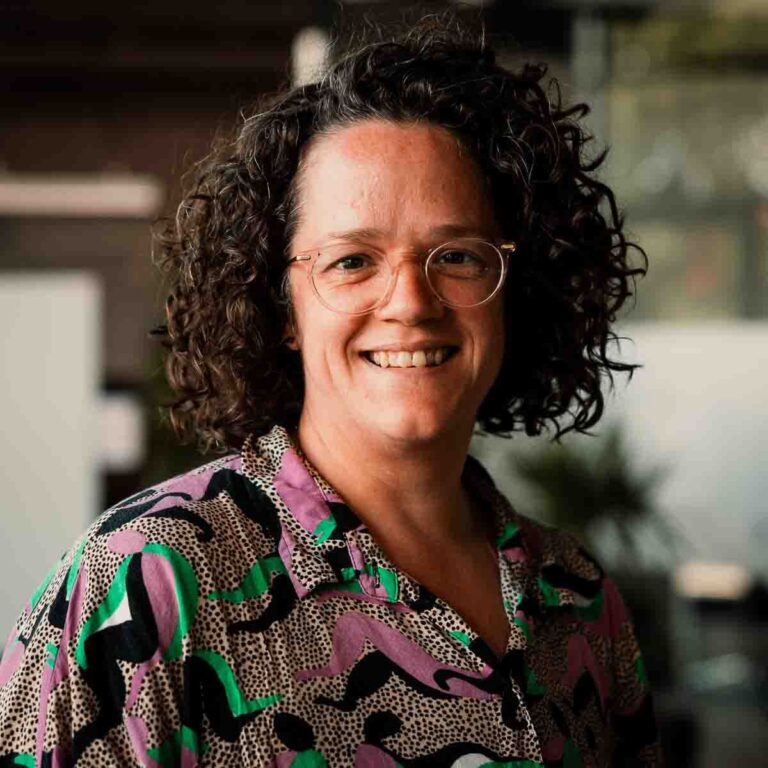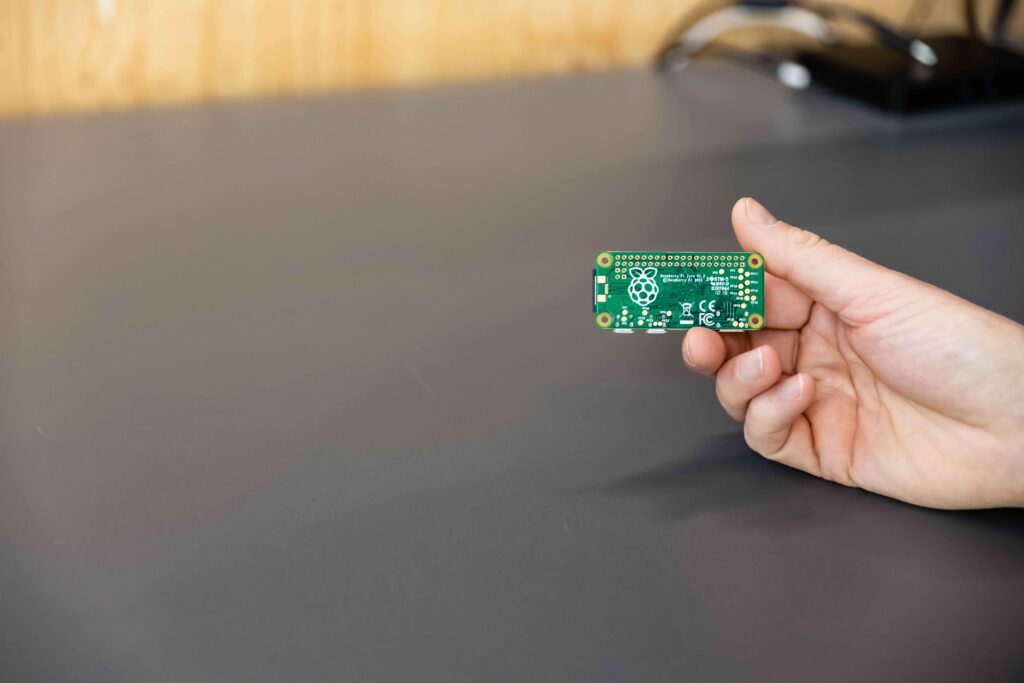Our progress in 2020
For 48percent.org, 2020 was a year of growth and learning. This blog post explains how we grew as a foundation and who we collaborated with.


For 48percent.org, 2020 was a year of growth and exploration. It was our first full year as a foundation. Because of the pandemic, it was also a year that showed the whole world just how important connectivity is. The global focus on connectivity and moving towards a more digital society gave us ample opportunities to support projects working on connectivity solutions that fit the needs of their community. It also gave us opportunities to partner with other organizations and learn from them. Below is a summary of the projects we contributed to, and how we developed as a foundation in the year 2020.
Refining our mission and vision
The mission of 48percent.org is to facilitate equality through equitable access to connectivity. We do this by supporting and setting up projects within three program lines that give us direction but are not meant to restrict us. The program lines are:
1. To facilitate access to affordable connectivity.
2. To facilitate higher education levels and digital literacy
3. To facilitate privacy awareness and safe internet usage
Program line 1 refers to physical access. Does the project provide wifi, or build a better infrastructure for internet capabilities? Then it falls in the first program line. Program line 2 is all about giving people the tools to learn more, either for digital literacy, or to provide themselves more opportunities. Program line 3 is meant to be for projects that promote internet privacy awareness and safe internet usage.
We have the advantage of being a foundation with a guaranteed budget which allows us to make financial contributions to a number of grassroots projects throughout the year. We also have access to a wealth of knowledge, and the ability to donate our time to projects. This is shown, for example, through our cooperation with Edumais this year, where we designed and wrote a lesson plan teaching students about internet safety and privacy. We have also had some success with being involved in pilot programs, and plan to explore that avenue more in 2021.
Establishing our board of directors
As an officially recognized foundation, we are required to have a board of directors and that board needs to have an official board meeting at least once a year. The board of 48percent.org is made up by Mark Vletter, Ben Hoetmer, and Pollien van Keulen.
This year we held our first official board meeting. During the meeting, we talked about the projects from 2020, the plans for 2021, the makeup of the 48percent.org team, and the possibilities for scaling up our financial contributions in the future.
Organizations we collaborated with
This year was the year of exploration and diversification. The aim was to build a portfolio of different types of projects and methods of contribution.
We made a financial contribution to BlinkNow to fund their wifi for a year and pay for additional laptops for the staff and kids at the school in Nepal. Even though the internet connection is available in Nepal, it’s expensive and by funding this we make sure they can spend their money on different ways to support the children in Kopila Valley.
We worked on a lesson plan about privacy awareness for Edumais that could be implemented in their regular curriculum. Unfortunately the pandemic has forced EduMais to close their school and also delayed this project. But the first version of the lesson plan is finished and will be implemented as soon as lessons resume again.
We got in touch with the Association for Progressive Communications through Rhizomatica, a community network organization in Mexico. The APC is an international network of organizations aimed at facilitating the strategic use of ICTs in promoting peace, human rights and the protection of the environment. In cooperation with them we created a COVID-related grant program and offered 5 of their partners the opportunity to apply for a grant of $4000. While working in this, Rhizomatica contacted us with an emergency funding need for communities in the Amazon. Due to the fact that the pandemic was now reaching these remote places, there was increased need to get health and safety information out there to help people stay safe. We supported this project with a financial contribution of $5000.
To get more understanding of what our financial contributions are worth within the scheme of connectivity, we started a ‘what can we do with 10.000 euros’ project with Inveneo. These guys have been working on realizing connectivity in the most difficult places on the planet for years and have a lot of experience. Together with them we started a pilot project around digital literacy for kids in Haiti. It has been so insightful to see how they work, how they set up projects, and what money can buy in this project. Due to the pandemic, setting up the project has been delayed but we are confident that the project will start somewhere in the beginning of 2021.
While talking to the different organizations that work in this world of connectivity, you come across a lot of great ideas. One of these ideas was the ‘internet bank’, a food bank but for the internet. Why does this not exist, we wondered. Especially now that we are in this pandemic, nobody can imagine their lives without internet access. So, we wanted to see if we could realize this. That led to a lot of talking to a lot of different people and organizations and we learned so much. The preliminary conclusion: a lot of people and organizations also feel that this should exist, the challenge is getting it funded. Because using the internet, in other words the data, costs money, it’s as simple as that. We are at the point now that we can start drafting very specific funding applications and we also saved some of our own funds this year to use next year. Our ambition is to realize one, and hopefully even two, pilots in 2021 that will provide internet to families living in poverty for at least a year. During that year we will try our hardest to find structural funding.
We were also able to participate in a panel discussion together with the Norwegian Refugee Council at the at the Nethope Summit regarding a project for connectivity within refugee settings. This project centers around testing a business model for facilitating connectivity within the humanitarian framework. For this project we are working together with Chris Hoffman from HumanityLink. This project has evolved in two parts: facilitating a connectivity collective to keep the conversation about the importance of connectivity in humanitarian settings going and also setting up a pilot in 2021.
How we grew as a team
We are now a core team of 7 people. Our team is multidisciplinary and we have found that it helps greatly in terms of partnering with other organizations. Because of the pandemic, most of this year has been remote for the whole team. The focus has been on internal communication so everyone in the founding organizations knows what is going on, and how we are moving forward in our mission. We use slack to communicate with each other and with our other colleagues from Voys and Devhouse Spindle.
For our external communication, we worked on creating a strategy that involves the different kinds of content we have to post as well as where we will post it. For communication especially, 2020 was a year to organize and prepare, and 2021 is a year to hit the ground running.
Our financial contributions in 2020
We deliberately chose to distribute our money in incremental contributions in order to keep in pace with learning about what a dollar/euro ‘buys’ in this sector. We also created a guideline for our budget allocation. Our budget is not one big pile of money, but rather we divided it into categories to be spread out during the year. We have a 70/30 division between allocated and unrestricted funds. That means that we have 30% of our budget available for ad hoc contributions that come along during the year.
We started designing our own fundraising and sponsorship model. This is aimed at laying the groundwork for the long-term picture of our partnerships and how we can work towards a more diversified funding model for ourselves. Right now 48percent.org is fully dependent on the funding from Voys and Spindle, which is fine for now. But in the future, we would really like to attract more funds in order to really scale our efforts.
Determining and measuring our impact
Our motto is “everyone contributes their grain of sand” and while we believe that doing something small is as good as doing something big, we still want to measure the impact of the project, no matter the size. Measuring social impact is not an easy feat and we are still in the early stages of determining how best to do this. The ideal way of determining our impact is to measure the direct and indirect effect of our activities to determine whether we are creating or facilitating positive change in the world of your beneficiaries. Because that is our ultimate goal. It’s not the amount of money you spend, or the number of people you reach, it’s the lasting positive change you are able to create for people in need.
Obviously, measuring this accurately is not something you get right on the first try. It is a process of trying, failing, learning, and refining. The more comprehensive our understanding of the actual need of the beneficiaries is, the bigger our ability to instigate sustainable positive change will be. And as we are looking at needs in a wide variety of circumstances, the ‘solution’ will probably come in different shapes and sizes.
So what are we doing in the meantime? We are using the data and metrics we currently have to guide us. Currently, we look at the amount of people we reach through our projects so we can steadily increase this number and increase our potential for impact. For 2020 we directly reached around 4700 people and we financially supported our partners with a total amount around 39.000 EURO.
In 2020 we gradually worked towards becoming a fully functional foundation. Financial contributions were still paid directly through our founding partners. The financial statement for 48percent.org will therefore be integrated into the financial statements of our founding partners.
Continuing on in 2021
While we are proud of all that we accomplished and contributed to in 2020, we know that there is a lot of work to be done. The amount of people not connected to the internet is shrinking, but finding equitable and sustainable solutions is still a challenge. We look forward to working with our partners, forming new relationships with similar organizations, and continuing to mature as a foundation in 2021 and the years ahead.